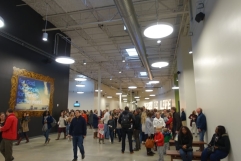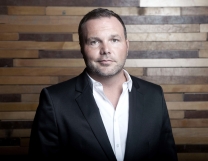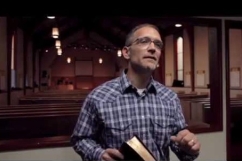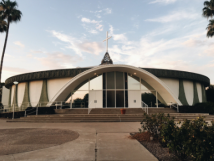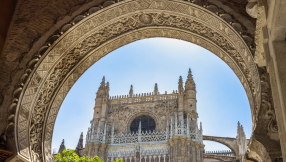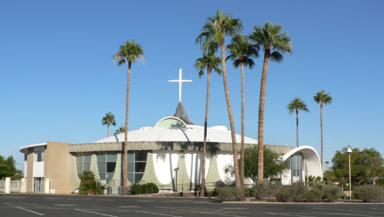
I cannot be the only person whose jaw hit the floor when news broke that Mark Driscoll was to host a conference on 'Building a Healthy Church' this autumn.
Driscoll's Mars Hill Church imploded and closed at the end of 2014 after allegations of bullying, manipulative behaviour and plagiarism by Driscoll. The Seattle megachurch was described by a former member of its board of advisers and accountability, Paul Tripp, as "the most abusive, coercive ministry culture I've ever been involved with".
The Jimmy Evans Pastors School conference at Driscoll's new Trinity Church in Phoenix, Arizona in November will include addresses on "Building a healthy church government", "Developing healthy leadership from within", "Raising and managing church finances" and "Creating a healthy philosophy of ministry".
Whether Driscoll will be a keynote speaker isn't clear, though he can be expected to appear. But the temptation to make comparisons like, say, Donald Trump to give the keynote speech at a Friends of the Earth meeting or King Herod to address a childcare conference is irresistible. However, it's never quite that simple.
On the face of it, Driscoll is the last person on earth to be able to speak with any authority about subjects like these. He should slip in quietly to the back of the auditorium and take notes, not stand up there on the platform.
Again on the face of it, hosting such a conference looks like an act of monstrous arrogance, in which someone who's learned nothing from his experiences will use his too-soon return to the public eye to work off some old scores.
Well, that may be true. But it isn't necessarily true.
One of the recurrent complaints against Driscoll is that he seems insufficiently aware of his culpability in the Mars Hill debacle. A gifted communicator with a alpha-male personality, he appears to have become focused on destroying his opposition rather than building the Kingdom. Another is that he's returned to a high-profile ministry too soon, rather than spending an appropriate length of time in repentance, self-examination and supervision.
The forthcoming conference might give him the opportunity to answer both these allegations.
One of the great gifts Christianity has to offer to the world is the idea of forgiveness and restoration. We aren't forever defined by our mistakes, our follies or our sins. We can repent, learn and build on our experiences of failure to develop wisdom and insight.
That's not to say these experiences, whether of sinfulness or suffering, are good. They are best avoided. But they sometimes teach us things that we wouldn't have known if we hadn't had them. As Oscar Romero, the martyred Archbishop of El Salvador said: "There are things that can only be seen by eyes that have cried."
On this understanding, Driscoll may just be the best possible person to speak to themes like this. Of course he would face accusations of hypocrisy. But whether these are justified depends on what he actually says. Perhaps he'll try to settle some scores. Or perhaps he'll draw on his experiences to say, "This is what I did wrong, and this is how you can avoid the same trap." So the conference organisers might just like to think of him as the best resource they could possibly find, and put him up there with the headline speakers.
There are no limits to the grace and forgiveness of God, and no limits to His power to restore. We can set our own limits, by not repenting of what we've done and refusing to learn from our failures. But in principle, why not invite King Herod to speak at that childcare conference?
Follow Mark Woods on Twitter: @RevMarkWoods










